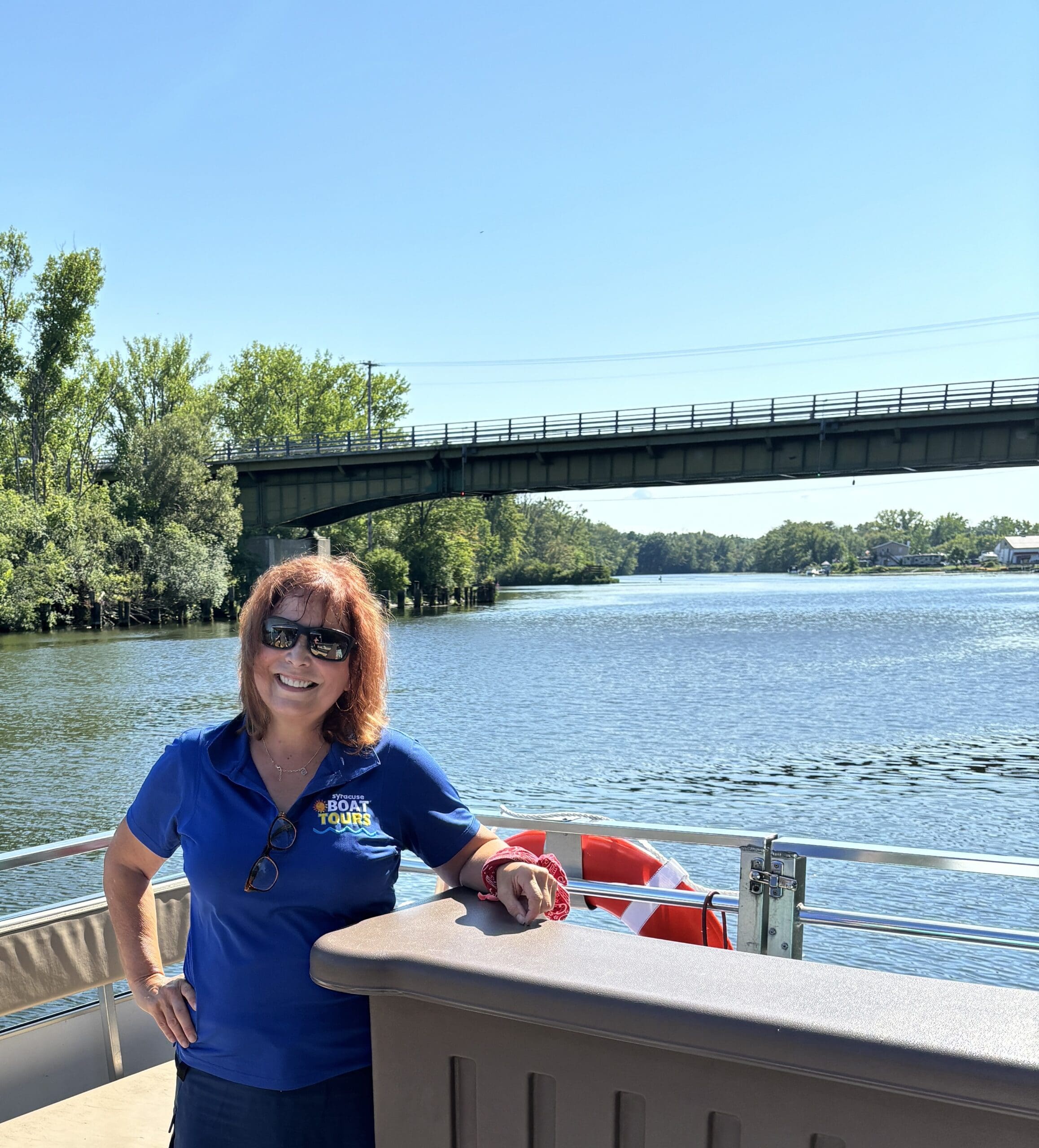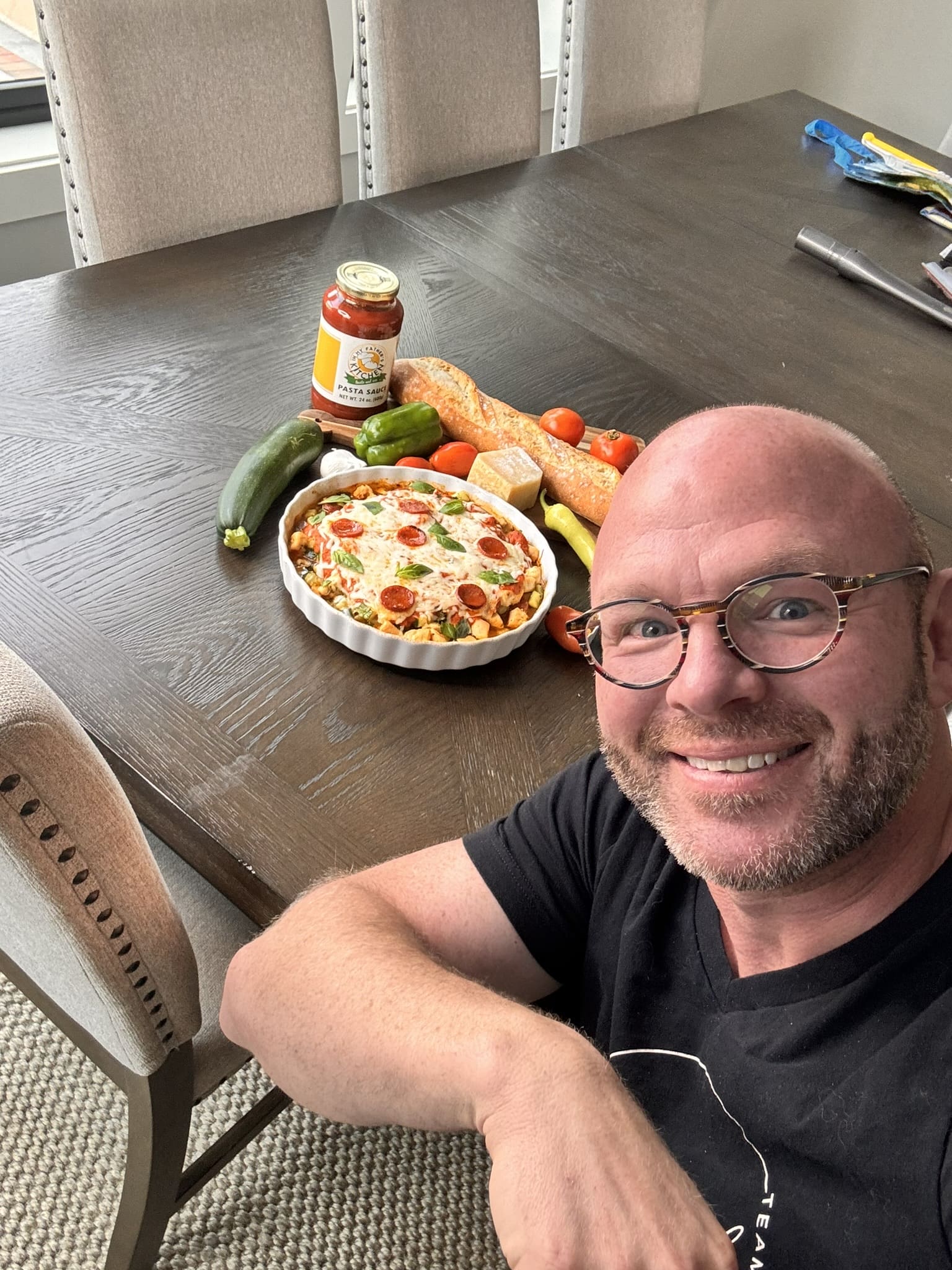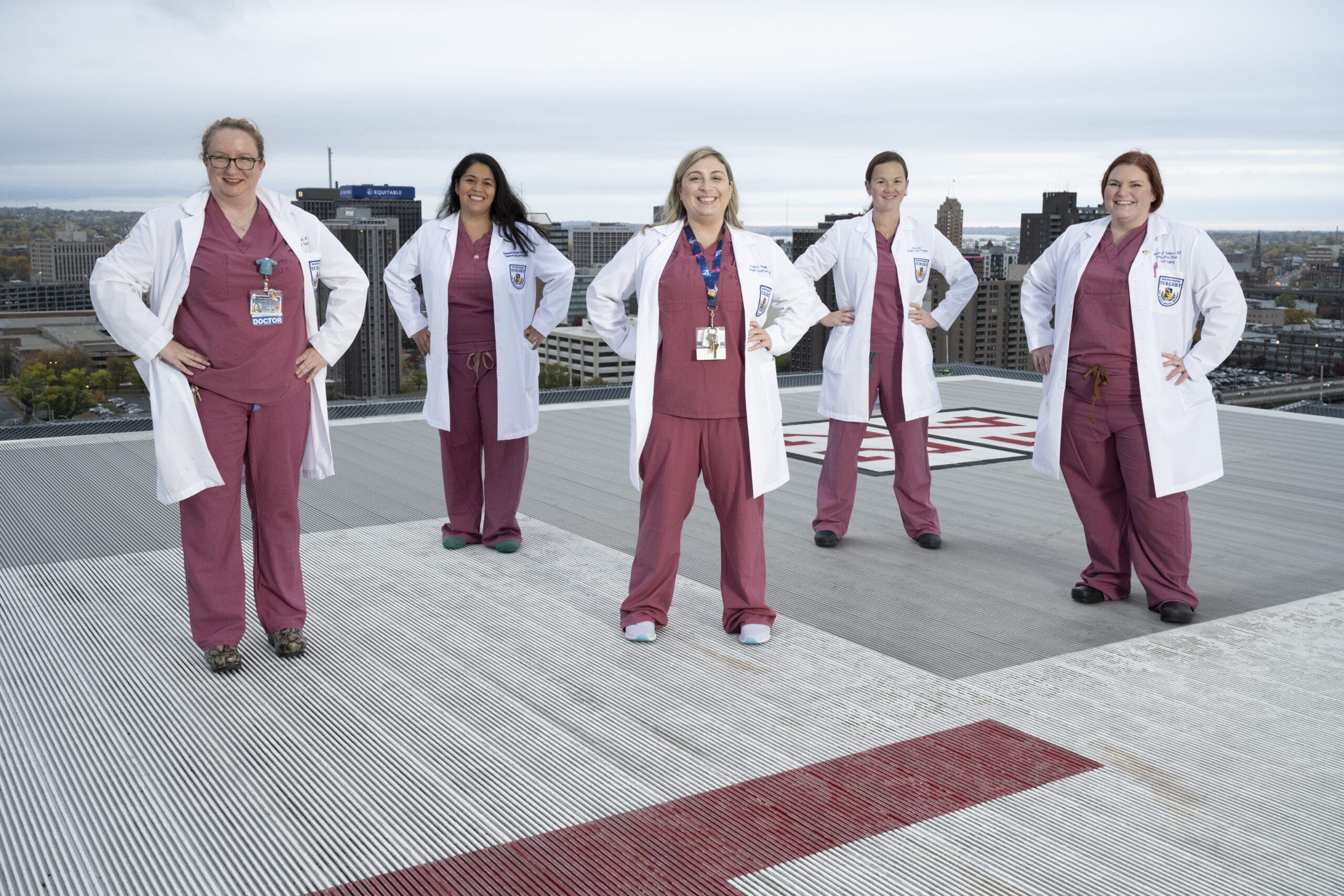Putting an Exclamation Point on Life
By Carol Radin | Photography by Alice G. Patterson
Sheryl Garofano is on a journey. Diagnosed with stage IV colon cancer 18 months ago, she traverses new challenges every day: chemotherapy treatments, surgeries and side effects; the constant search to educate herself and her family about her treatment options; and, above all, the emotional challenge of sustaining her sense of self.
Sheryl was about to retire after 20 years as a career and technical education teacher at Cicero-North Syracuse High School, when she started treatment for what was initially diagnosed as diverticulitis. Then, a colonoscopy and a subsequent CT scan revealed something far more serious. She had colon cancer that had metastasized to her liver and affected several lymph nodes.
“It pulls the rug right out from under you,” she said, describing the feeling of fear and powerlessness.
It wasn’t long, though, before she began to take control, examine her options and summon her support network.
After her own research and discussions with doctors, one of the most important realizations Sheryl has made is that with new treatments and knowledge, later stage cancers are seen “less as cured/not cured, and treated more like chronic illnesses managed over time,” she said.
With that in mind, Sheryl is tenaciously committed to her ongoing treatments, surgical procedures and consultations. Shortly after the diagnosis, she began a six-month-long series of chemotherapy treatments. Her follow-up tests were promising: the tumors on her colon and liver had shrunk.
Months later, though, the tumors and liver lesions had returned. Sheryl and her husband, Mark, sought opinions at the Dana-Farber Cancer Institute in Boston, Johns Hopkins Medical Center in Baltimore and the University of Pittsburgh Medical Center. At Johns Hopkins, Sheryl had liver resection surgery to remove the lesions.
In December 2017, she had surgery at the University of Pittsburgh Medical Center to implant a hepatic arterial infusion pump in her abdomen. The pump is a hockey puck-sized device that pumps stronger chemotherapy medication to her liver. At that time, she also had her spleen and gallbladder removed.
Traveling from city to city and hospital to hospital for surgery and medication regimens is a way of life for Sheryl now, although it is not her entire life. She’s found that many days, she can enjoy her personal pursuits and quality time with Mark, their four grown children and four grandchildren.
“It’s like putting an exclamation point on everything,” Sheryl said.
She and Mark have decided to stop talking about things and start doing them. Travel is high on the list: more camping trips on their motorcycle, an upcoming visit to her brother in Florida, and — most ambitious of all — a prospective trip to Kenya, where her daughter and three of her grandchildren live.
“I don’t talk myself out of stuff like I used to,” she said.
She’s also strengthened her connection to friends. When she can’t see them in person, she shares updates about her condition on her blog on Caring Bridge, a social media platform. It keeps her from having to relay the same information time and time again, and also helps her friends coordinate visits and meal-making on Sheryl’s tiring chemotherapy days.
“Realize it’s OK sometimes to just not feel that great,” she advised. “Ask for help.”
Supportive family and friends aside, the feeling of being alone is one of the more difficult emotional challenges Sheryl faces.
“When you get right down to it, it’s you facing it,” she said.
Online resources have helped. She recommends Colontown, a Facebook community of colon cancer survivors, and the Colorectal Cancer Alliance, which offers chatrooms, informative articles, webinars and podcasts. She’s also discovered the Livestrong program at her local YMCA, which has given her new bonds with other cancer survivors.
Sheryl’s personal journey continues day by day. Soon, she will begin a systemic chemotherapy series she’s trying for the first time. Combining that with the HAI pump’s more targeted treatment is found to increase overall effectiveness, she said. She’s ready to explore the new possibilities. SWM
Want to support cancer research? Visit cancer.org to learn what you can do to help.





